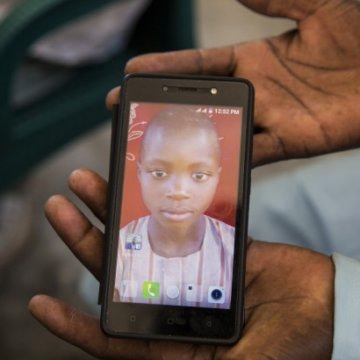- About
- Topics
- Picks
- Audio
- Story
- In-Depth
- Opinion
- News
- Donate
-
Signup for our newsletterOur Editors' Best Picks.Send
Read, Debate: Engage.
| topic: | Human Rights |
|---|---|
| located: | Nigeria |
| editor: | Bob Koigi |
The over a decade conflict in North East Nigeria – perpetuated by the Jihadist group Boko Haram as it seeks to establish an Islamic state and advance its ideologies in the West African country – has not only claimed tens of thousands of lives and displaced millions of people but has also altered the economic, social and political lives of an entire region in one of the most devastating conflicts in the continent.
With the escalation of the insurgency, families have been separated, children maimed and killed by bombs, health workers murdered and facilities that provide key services like schools and hospitals destroyed.
Only recently the International Committee of the Red Cross, ICRC, released a report indicating that close to 22,000 Nigerians in the North East region are still missing, with 60 per cent of this figure being minors. This represents the highest number of missing persons to have been recorded by the organization in any country the world over.
From being separated while escaping the attacks to being abducted and detained, families have had to live with painful and scary memories of the moments their loved ones disappeared and the agony of surviving each day not knowing if they will be back.
For a country that has been ranked as the third most terrorized in the world, Nigeria needs to have an honest conversation about the commitments it is making at protecting its citizen and holding to account the saboteurs of its efforts to rid the country off the terror group. 22,000 can no longer be just a number or another set of statistics. These are people whose families live every day hoping they return home.
The counter-insurgency operations have been dented with serious claims of military officers killing innocent civilians. Compelling documentary evidence on the same is in the public domain. Justice must be served if Nigeria is to convince the community of nations that it is committed to the war on terror.
As terror mutates and insurgency groups like Boko Haram grow their influence and territories across borders, the international community needs new and innovative strategies that prioritise the safety, especially of women and children, the first victims of this conflict.
Image: ICRC
